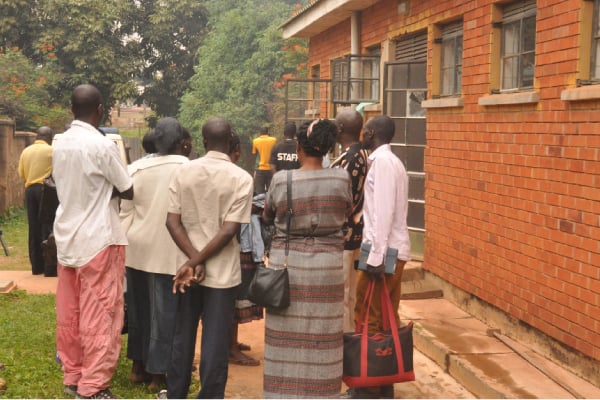Arrest health officials holding bodies, says police boss

What you need to know:
- The CID spokesman, Mr Charles Twiine, declined to comment or confirm the message saying he can’t talk about internal official information leaked by errant officers.
The deputy director of criminal investigations has ordered detectives to arrest private health care providers, who have been withholding bodies, especially those of Covid-19 victims, for non-payment of medical bills.
In a September 14 message to criminal investigations officers in the country, Mr Paul Katto said: “You are, therefore, directed to take interest in investigating and apprehending private health care providers, who continue to break the law by committing offences like wrongful confinement, hindering burial of the dead, that are closely stipulated in the Penal Code [Act]”.
Medical facilities have been detaining patients and bodies of the deceased until they pay their medical bills, especially during the Covid-19 period.
Mr Katto said the private health care facilities should sue the parties that have failed to pay rather than retaining the bodies.
The CID spokesman, Mr Charles Twiine, declined to comment or confirm the message saying he can’t talk about internal official information leaked by errant officers.
“It is criminal for an officer to leak any internal information to the press or any other person. I have no comment about that issue,” Mr Twiine said yesterday.
The law
According to the Section 121 of the Penal Code Act, it is a misdemeanour to hinder the burial of a dead body without authorisation.
“Whoever unlawfully hinders the burial of the dead body of any person, or without lawful authority in that behalf or otherwise than in accordance with rules made by the minister disinters, dissects or harms the dead body of any person or, being under a duty to cause the dead body of any person to be buried, fails to perform such duty, commits a misdemeanour,” the section reads.
When contacted, Ms Grace Ssali, the executive director of Uganda Health Care Federation, said the issue was raised by different stakeholders and they are handling it amicably with their regulators.
Mr Ssali said they agreed that they shouldn’t retain the bodies or holding patients for non-payment of medical bills, but have a payment plan and many patients are using it.
She said they agreed to refer patients to government facilities if they were unable to pay for treatment.
However, Ms Ssali said they face challenges when the relatives of the patients approve treatment despite the cost.
“Later, they fail to pay and even refuse to sign a payment plan of the medical bills,” she said.
She said this affects the financial stability of the private health care facilities since the option of going to court takes a lot of resources and time to force defaulters to pay.




